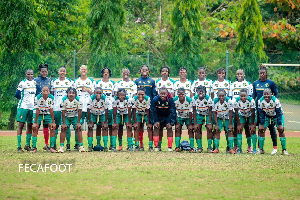Actualités Régionales of Tuesday, 30 December 2014
Source: bamendaonline.net
Bamenda Water Crisis Commission orders rationing
Water will be rationed in Bamenda in an effort to ease the current water crisis that has gripped most part of the city, Mezam SDO and chairman of the Bamenda Water crisis Commission created by Northwest governor to propose solutions to the crisis said.
Mr. Nguelle Ngulle Felix speaking over the Regional Station, CRTV Bamenda, said tankers from the Bamenda Army Rescue Unit and La Camerounaise Des Eaux (CDE) will ration water on a daily basis to the most affected neighbourhoods.
The water crisis in Bamenda started early November 2014, barely days after the last rains. Officials of the regional delegation of Mines, Water and Energy say only the coming of the rains can remedy the situation. They blame the current crisis on the drastic and unprecedented drop in the level of water at the Mbatu Dam due to most feeder streams running dry.
It has become a usual sight in Bamenda to see, children, women and men walk long distances with 20 litres containers in search of water. Several residents have been forced to fetch water from doubtful sources like boreholes and streams, prompting fears of a potential cholera outbreak.
This is the first time that the City of Bamenda is experiencing a water crisis of this scale. The Bamenda Highlands which also forms part of the great water basin of Cameroon and West Africa is blessed with abundant fresh water sources mostly originating from the Ngemba Forest Reserve, found in parts of Awing, Akum and Bamendakwe.
The concerned neighbourhoods are Upper Ntamulung, Upper Metta Quarter, Atuazire, Nacho, Abangoh, Njimafor, Former Cenajes, Mbenfibeh, Upper Bayele, Sisia, Banjah, Mile III Nkwen, Ndumukong, New Layout Nkwen, Ntabessi, Ghana and Cow streets.
Distribution points have also been created in these neighbourhoods. Residents are expected to bring their receptacles to these points everyday from Monday to Saturday as from 10 am to collect water.
Population pressure on the reserve has seen it shrink considerably, with the demand for firewood, farm land and building space taking its toll on the reserve exposing spring sources and streams to the scorching sunshine and eventually drying them up. Feeder streams to the Mbatu Dam have already run dry barely two months into the dry season, an indication that the water crisis in Bamenda is far from over.
So far the only parts of town unaffected are Nkwen urban, Nkwen rural, Mankon rural, Bamendakwe, Ngongham and parts of the rural areas surrounding Bamenda that depends on alternative water supplies.












